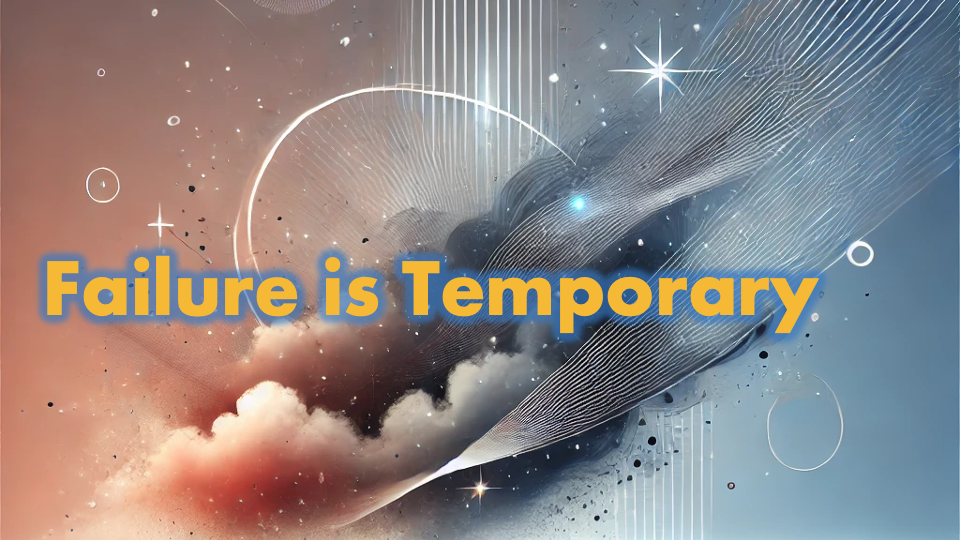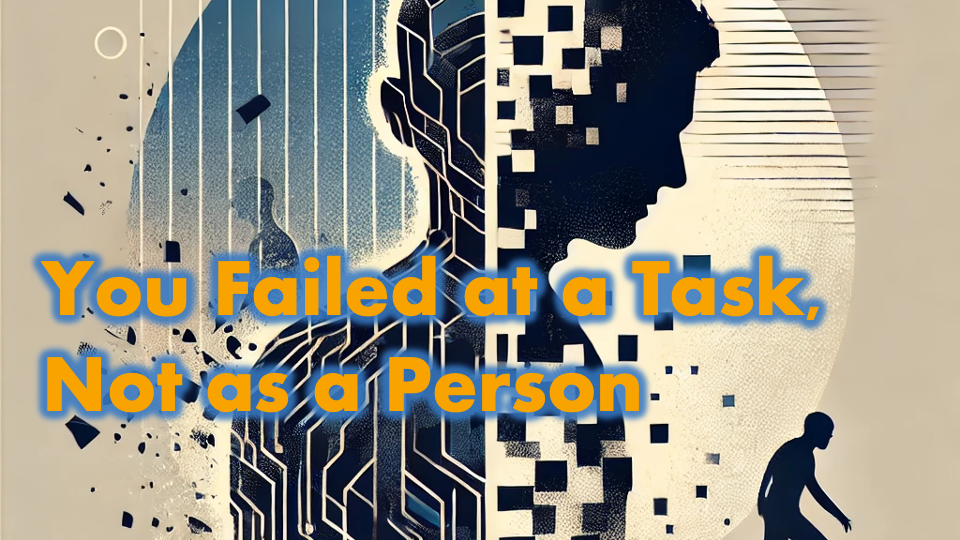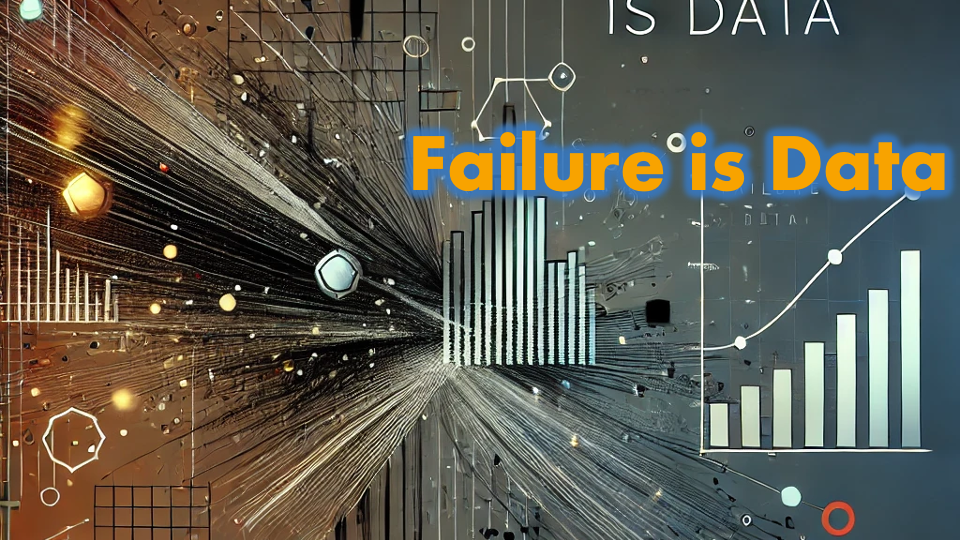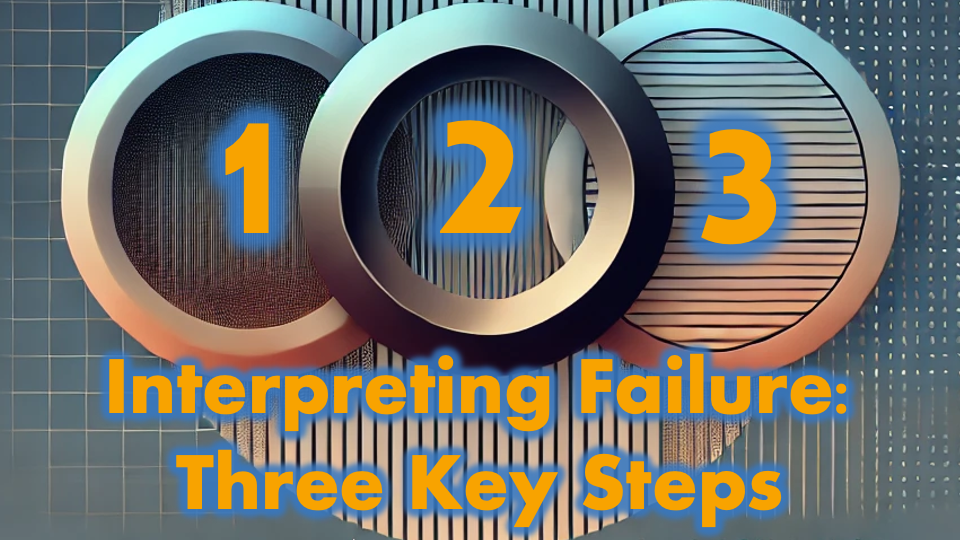Failure Is Your Best Friend: Why Embracing Setbacks is the Key to Success
Written by Rod on September 6, 2024
Success is not a straight line; it’s a winding road filled with twists, turns, and, yes, failures. But what if I told you that failure could be your greatest ally on this journey? It’s time to change our perspective and see failure for what it truly is: a powerful teacher and a critical component of success.

First and foremost, failure is temporary. It’s a momentary event, not a permanent state. Think of failure as a single frame in the movie of your life, not the entire film. When we fail, it’s easy to feel like the world is ending, but the truth is, it’s just a setback, not the end of the story. This perspective shift is crucial. Remember, every successful person has faced numerous failures along the way. They didn’t let those failures define them; instead, they used them as stepping stones to success.

One of the most damaging myths about failure is that it reflects on your worth as a person. This is simply not true. Failing at a task means you didn’t achieve the desired outcome in a specific instance, not that you are a failure as a person. Separating your identity from your actions is key. You are not your mistakes; you are what you learn from them and how you grow as a result. Embrace the idea that failure is just feedback. It’s information that can help you improve and adapt.

Failure provides valuable data. It’s like a scientist conducting experiments; each failure brings you closer to finding what works. When you fail, you gain insights into what doesn’t work, and these insights are invaluable. Use this data to tweak your approach, refine your methods, and move forward with greater wisdom and clarity. View failure as a natural part of the learning process. It’s not a judgment on your abilities, but rather a necessary step towards mastery.

1. What Actually Happened?
Start by analyzing the situation objectively. What exactly went wrong? What were the specific circumstances that led to the failure? Leave out the emotions and state the facts “I got fired” or “I missed my quarterly goals”. By breaking down the events, you can identify patterns and pinpoint the exact areas that need improvement. This objective analysis removes the emotional charge from the failure, allowing you to see it as a problem to be solved rather than a personal flaw.
2. What Does It Mean to You?
The meaning you assign to failure is crucial. Choose an empowering interpretation. Instead of seeing failure as a sign that you’re not good enough, see it as an opportunity to learn and grow. Ask yourself, “What is this failure teaching me? How can I use this experience to become better?” “That company wasn’t a good fit for me” or “I need to begin prepping earlier in the quarter” are good meanings to choose. By framing failure in a positive light, you transform it from a source of despair into a powerful motivator.
3. What Are You Going to Do About It?
Finally, take action. Failure is only valuable if it leads to growth. Based on your analysis, decide on the specific steps you will take to improve. This might involve changing your strategy, seeking new knowledge, or simply persevering with greater resilience. The key is to use the information gained from failure to propel yourself forward. Action transforms failure from a dead end into a stepping stone.
Real-Life Examples
Consider the story of Thomas Edison, who famously said, “I have not failed. I’ve just found 10,000 ways that won’t work.” Each of his so-called failures brought him closer to inventing the light bulb. Similarly, J.K. Rowling faced multiple rejections before Harry Potter became a global phenomenon. These individuals did not let failure deter them; they used it as fuel for their persistence and innovation.
Embracing Failure in Your Career
In your career, embracing failure can set you apart. Instead of fearing failure, approach new challenges with a mindset of curiosity and learning. Each setback is an opportunity to gather more data, refine your approach, and develop resilience. This mindset will not only make you more adaptable but also more innovative. Others will notice that you’re resilient and undefeatable. Companies and leaders who embrace failure as part of the growth process tend to foster more creative and dynamic environments.
The Take Away
Failure is not your enemy; it’s your best friend on the path to success. It teaches you, strengthens you, and ultimately propels you toward your goals. By viewing failure as a temporary setback, separating it from your identity, and using it as valuable data, you can transform your approach to challenges. Remember, it’s not about never failing; it’s about how you interpret and respond to failure that defines your success. Embrace your failures, learn from them, and watch as they pave the way to your greatest achievements.By shifting your mindset and embracing failure, you not only grow as a professional but also as an individual. Remember, every failure is a stepping stone towards your ultimate success. Keep moving forward, and let failure guide you to your greatest achievements.




